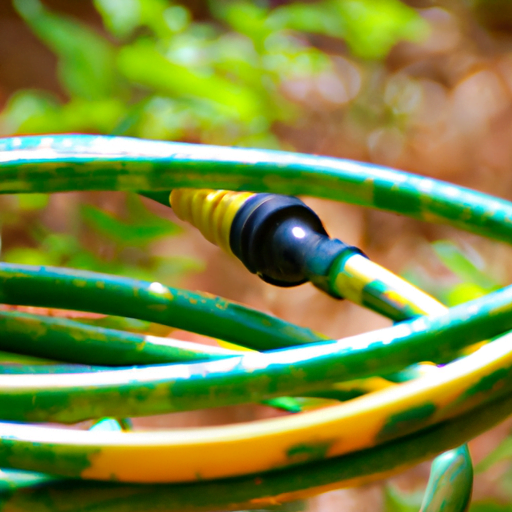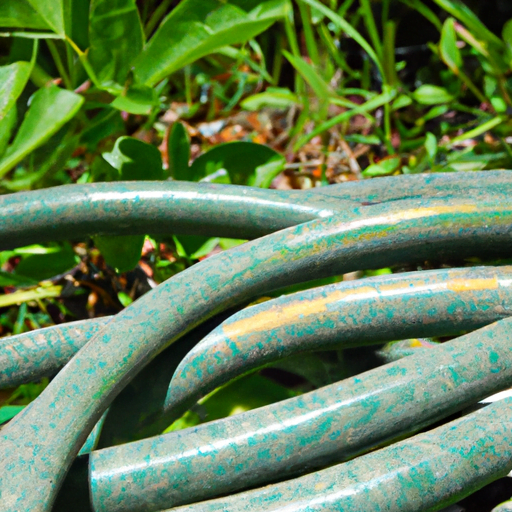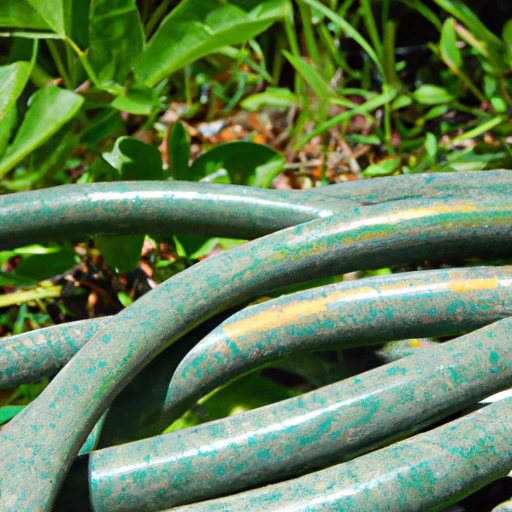Hey, have you ever heard of grey water? You know, the water that comes from your sinks, showers, and washing machines? Well, I recently stumbled upon something interesting – the idea of using grey water for things like watering the garden or flushing the toilet. It got me wondering, is using grey water legal in Alabama?
Grey water is essentially water that has been used once, but is still relatively clean and free from contaminants. Instead of letting it go to waste, some people choose to reuse it for various purposes, such as irrigation or toilet flushing, in order to conserve water and reduce their environmental impact. However, the legality of using grey water varies from state to state, and it’s important to know the rules and regulations before implementing such a system.
In Alabama, the use of grey water is regulated by the Alabama Plumbing Code, which provides guidelines on how it can be collected, stored, and used. While the code does not prohibit the use of grey water, it does require certain precautions to be taken to ensure public health and safety. For instance, the grey water must be properly treated to remove any harmful bacteria or pathogens before it can be used for non-potable purposes. Additionally, the code specifies that the collection and distribution systems must be separate from the drinking water supply to prevent cross-contamination.
To dive deeper into this topic and understand the specifics of using grey water in Alabama, I found a highly informative article that provides a comprehensive overview of the regulations and requirements. It covers everything from the types of grey water that can be reused to the necessary treatment methods and system design considerations. So, if you’re interested in exploring the possibility of using grey water in Alabama, I highly recommend checking out this article for more in-depth information. Who knows, it might just be the eco-friendly solution you’ve been looking for!

Understanding Grey Water
Definition of Grey Water
Grey water is the term used to describe wastewater that is generated from household activities such as bathing, laundry, and dishwashing. It does not include sewage or water contaminated with human waste. Grey water contains fewer contaminants compared to black water (sewage), but it is not potable and requires appropriate treatment before reuse.
Sources of Grey Water
Grey water can be sourced from various household activities, including showering, bathing, washing machines, dishwashing, and sinks. It is important to note that grey water should be collected separately from black water to ensure proper treatment and prevent contamination.
Laws and Regulations in Alabama
Current Legal Status
Currently, the state of Alabama does not have specific laws or regulations that address the use of grey water. This means that individuals are not restricted from using grey water in their households; however, it is recommended to follow safety guidelines and employ responsible usage practices.
Permits and Regulations
Since there are no specific laws or regulations regarding grey water usage in Alabama, there is no requirement for obtaining permits for residential grey water systems. Nevertheless, it is essential to adhere to best practices and ensure that grey water is used in a manner that protects public health and the environment.
Benefits of Using Grey Water
Water Conservation
One of the key advantages of utilizing grey water is water conservation. By reusing grey water for non-potable purposes like watering plants or flushing toilets, households can significantly reduce their freshwater consumption. This, in turn, helps alleviate the strain on local water sources, especially during times of water scarcity.
Cost Savings
By implementing grey water systems, individuals can enjoy cost savings on their water bills. Since grey water can be reused for activities that do not require potable water, households can reduce their reliance on municipal water supplies, resulting in lower utility expenses. Moreover, reusing grey water can also reduce the strain on septic systems, potentially leading to reduced maintenance and repair costs.
Sustainable Living
Using grey water aligns with sustainable living practices by promoting the conservation of water resources. By reducing the demand for freshwater, individuals contribute to the preservation of natural ecosystems and the overall sustainability of their communities. Additionally, sustainable water usage practices help mitigate the impacts of climate change and promote environmental stewardship.

Treatment and Disinfection
Methods of Grey Water Treatment
Grey water treatment involves various methods to remove contaminants and make the water suitable for reuse. Common treatment techniques include filtration, sedimentation, and biological processes. These methods help remove solids, organic matter, and bacteria from the grey water, ensuring its safety for non-potable use.
Disinfection Techniques
To further ensure the safety of grey water, disinfection techniques can be employed to eliminate harmful pathogens. Chlorination, ultraviolet (UV) disinfection, and ozonation are commonly used methods to disinfect grey water. Proper disinfection is crucial to prevent the transmission of waterborne diseases and protect the health of individuals using the grey water.
Safety and Health Concerns
Potential Risks
While grey water can be beneficial when treated and used responsibly, there are potential risks associated with its usage. Grey water may contain traces of chemicals from cleaning agents, personal care products, and other substances used in households. These chemicals can be harmful if improperly exposed or ingested. Additionally, if grey water is not treated or stored correctly, it can become a breeding ground for bacteria and pathogens, posing health risks to individuals.
Proper Handling and Usage
To mitigate potential risks, it is essential to handle and use grey water properly. Grey water should be treated and disinfected before use, and individuals should avoid direct contact with untreated grey water. Additionally, it is important to properly maintain and clean grey water storage tanks to prevent the growth of harmful bacteria. Educating oneself on best practices for grey water usage is crucial to ensure the health and safety of both the user and the environment.
Pros and Cons of Grey Water Usage
Advantages of Grey Water
The advantages of using grey water are numerous. It promotes water conservation, reduces utility expenses, and contributes to sustainable living practices. Grey water systems can be a valuable asset for individuals seeking to minimize their environmental footprint while enjoying cost savings.
Disadvantages of Grey Water
Despite its benefits, grey water usage also has some drawbacks. It requires additional infrastructure and investments to implement a grey water system effectively. Furthermore, grey water usage requires regular maintenance to ensure the proper functioning of treatment systems and prevent potential health risks.
Educating the Public
Importance of Grey Water Education
Educating the public about grey water usage is crucial to promote responsible grey water practices. Proper education can help individuals understand the benefits, risks, and best practices associated with grey water. By providing knowledge and resources, individuals can make informed decisions about implementing grey water systems and ensure the health and safety of themselves, their communities, and the environment.
Promoting Awareness
To promote awareness about grey water usage, it is essential to engage with both the general public and policymakers. Community workshops, informational campaigns, and online resources can be utilized to distribute educational materials and encourage the adoption of grey water systems. Additionally, working with local authorities to develop comprehensive grey water regulations can ensure safe and effective grey water usage across the state.
Alternatives to Grey Water
Rainwater Harvesting
Rainwater harvesting is an alternative to grey water usage. It involves collecting and storing rainwater for non-potable uses such as irrigation, toilet flushing, and laundry. Rainwater harvesting systems can be simple or complex, depending on the specific needs and goals of individuals. Implementing rainwater harvesting can help reduce reliance on municipal water supplies and conserve valuable freshwater resources.
Water Recycling Systems
Water recycling systems, also known as water reuse systems, are another alternative to grey water usage. These systems collect, treat, and disinfect wastewater from various sources, including grey water and black water. Treated water can then be reused for non-potable purposes, such as irrigation, industrial processes, or toilet flushing. Water recycling systems offer a comprehensive and sustainable solution for water conservation in both residential and commercial settings.
Case Studies and Success Stories
Examples of Grey Water Implementation
Various communities and individuals have successfully implemented grey water systems to address their water needs. For example, the town of Bisbee, Arizona, implemented a community-wide grey water system, which reduced their freshwater consumption by 70%. Similarly, individual homeowners in California have installed grey water systems to meet their landscaping and gardening needs while conserving water resources.
Positive Impacts on Communities
The implementation of grey water systems has had positive impacts on communities by reducing water demand and promoting sustainable living practices. These systems have not only helped conserve water resources but also contributed to community resilience during times of water scarcity. Additionally, grey water initiatives have raised awareness about responsible water usage and inspired others to adopt similar practices.
Conclusion
Final Thoughts
Although Alabama does not have specific laws or regulations regarding grey water usage, it is essential to approach its implementation responsibly. Grey water can play a vital role in water conservation efforts, cost savings, and sustainable living practices. However, proper treatment, disinfection, and handling are crucial to ensure its safety and mitigate potential health risks.
Encouraging Responsible Grey Water Use
To encourage responsible grey water use, education and awareness are key. By providing resources, promoting best practices, and engaging with the public and policymakers, we can create a culture that values and embraces grey water as a viable solution for sustainable water usage. By doing so, we contribute to the overall well-being of our communities and the preservation of our precious water resources.




